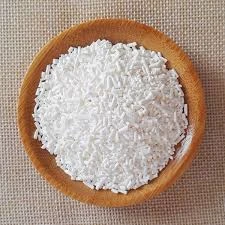
Premium Sulphur Fertilizer for Optimal Crop Growth
The Role of Sulphur in Fertilizers Enhancing Crop Growth and Soil Health
Sulphur, an essential macronutrient, plays a pivotal role in the growth and development of plants. Its significance in agriculture, particularly in fertilization, is often overlooked compared to primary nutrients like nitrogen, phosphorus, and potassium. However, the inclusion of sulphur in fertilizers is crucial for optimizing crop yield and improving soil health.
Firstly, sulphur is a key component of amino acids, the building blocks of proteins. It is vital for the synthesis of enzymes and vitamins that facilitate various metabolic processes in plants. When crops are deficient in sulphur, they exhibit stunted growth, yellowing leaves, and poor seed development. By incorporating sulphur-based fertilizers, farmers can ensure that their crops receive the necessary nutrients to foster robust growth and enhance productivity.
There are several forms of sulphur fertilizers available on the market, including elemental sulphur, ammonium sulphate, and superphosphate. Elemental sulphur is often used in dry form and is particularly effective in increasing soil acidity, benefiting crops that thrive in slightly acidic conditions. On the other hand, ammonium sulphate not only provides sulphur but also adds nitrogen, making it a dual-purpose fertilizer. Superphosphate contains both phosphorus and sulphur, promoting root development and flowering.
sulphur fertilizer

Moreover, the application of sulphur fertilizers can improve soil health. Sulphur aids in the formation of organic matter, enhancing soil structure and promoting microbial activity. Healthy soil is essential for nutrient retention and water infiltration, which ultimately leads to better crop yields. As agricultural practices evolve and the challenges of climate change intensify, the importance of maintaining soil health has never been more critical.
In addition to their agricultural benefits, sulphur fertilizers contribute to environmental sustainability. By optimizing nutrient use and reducing the need for excessive nitrogen applications, we can minimize the risk of environmental contamination resulting from nitrogen runoff, which often leads to waterway eutrophication. Furthermore, sulphur can help mitigate soil salinity, allowing for more sustainable farming practices in arid regions.
In conclusion, sulphur fertilizers are a vital component of modern agriculture. By understanding the numerous benefits of sulphur, farmers can improve their crop yields, enhance soil health, and contribute to sustainable farming practices. As the global population continues to grow, the demand for efficient and environmentally friendly agricultural solutions will only increase, making the role of sulphur in fertilization more critical than ever. Through responsible use of sulphur fertilizers, we can work towards a sustainable future in agriculture, ensuring food security and environmental conservation.
-
nitrile-rubber-honoring-strict-production-standardsNewsAug.22,2025
-
aspartame-ingredients-honoring-food-safety-valuesNewsAug.22,2025
-
fertilizer-for-balanced-plant-nutritionNewsAug.22,2025
-
cyanide-gold-processing-with-high-purity-additivesNewsAug.22,2025
-
formic-acid-in-textile-dyeing-applicationsNewsAug.22,2025
-
aluminum-hydroxide-gel-in-skincare-productsNewsAug.22,2025
-
Regulatory Compliance for Global Mining Chemicals UseNewsAug.12,2025
Hebei Tenger Chemical Technology Co., Ltd. focuses on the chemical industry and is committed to the export service of chemical raw materials.
-

view more DiethanolisopropanolamineIn the ever-growing field of chemical solutions, diethanolisopropanolamine (DEIPA) stands out as a versatile and important compound. Due to its unique chemical structure and properties, DEIPA is of interest to various industries including construction, personal care, and agriculture. -

view more TriisopropanolamineTriisopropanolamine (TIPA) alkanol amine substance, is a kind of alcohol amine compound with amino and alcohol hydroxyl, and because of its molecules contains both amino and hydroxyl. -

view more Tetramethyl Thiuram DisulfideTetramethyl thiuram disulfide, also known as TMTD, is a white to light-yellow powder with a distinct sulfur-like odor. It is soluble in organic solvents such as benzene, acetone, and ethyl acetate, making it highly versatile for use in different formulations. TMTD is known for its excellent vulcanization acceleration properties, which makes it a key ingredient in the production of rubber products. Additionally, it acts as an effective fungicide and bactericide, making it valuable in agricultural applications. Its high purity and stability ensure consistent performance, making it a preferred choice for manufacturers across various industries.





